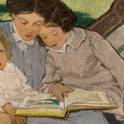In 1714, philosopher Bernard Mandeville set out in over 400 lines of doggerel the most enduring argument for the value of the free market. The Fable of the Bees tells of a hive full of selfish, deceitful, mean-spirited insects. However, the consequence of each looking after their own was a thriving community. “Thus every Part was full of Vice, Yet the whole Mass a Paradise”.
Subtitled Private Vices, Public Benefits, The Fable of the Bees anticipated every argument made since for the virtues of not just tolerating selfishness and profiteering but celebrating their productive power. Gordon Gekko could not have summed it up more succinctly when he proclaimed that greed was good in Oliver Stone’s Wall Street. Mandeville even celebrated the value of pointless, brash bling, saying that “luxury Employ’d a Million of the Poor, And odious Pride a Million more.”
It is therefore grimly ironic that a contemporary tale about bees, this time no mere fable, exposes the fatal flaw in Mandevillian laissez-faire. A little over 300 years after Mandeville held up the bees as an example to humans, we’ve found ourselves seriously stung.
Worries about declining bee populations have been around for several years now. Without pollinators, the world would face an unprecedented food crisis. According to the UN’s Food and Agriculture Organisation, “Three out of four crops across the globe producing fruits or seeds for human use as food depend, at least in part, on pollinators.”
However, this is not simply a problem of preserving wild populations of bees. Much of the pollination is done not by wild bees, but hives bred specifically for this purpose. It’s a huge business: one US beekeeper interviewed by the Financial Times has 75,000 hives alone. Beekeepers transport these hives, often over vast distances, to do their work at critical times in the season. In North America, queen bees are often imported from Australasia and South America. Travel restrictions due to Covid-19 mean that most of these hives cannot be moved and many crops will simply fail.
But why is there any need at all for such a strange trade? Because modern agricultural methods, with their frequently sprayed monocultures, lack the biodiversity for little other than the crop itself to survive. The pollinators have been wiped out in the fields, and so have to be bred elsewhere and brought in as seasonal migrant labourers.
Like its 18th-century predecessor, this 21st-century bee story is a fable with wider resonance. To understand this we have to see how the attraction of Mandeville’s original metaphor rested in large part on the naturalness of the hive. Proponents of free markets ever since have played the same card, most obviously when appealing to a Darwinian survival of the fittest to justify the “creative destruction” in free markets.
Coupled with this appeal to the glory of mother nature was a dim view of human nature. This view has been celebrated and defended as robust realism. As Mandeville said in his discussion of his fable, “Most writers are always teaching men what they should be, and hardly ever trouble their heads with telling them What they really are.”
But Mandeville’s logic contained two fatal flaws. In the fable, main character Jove becomes so indignant at the vice of the bees that he “in anger swore, he’d rid The bawling hive of fraud.” The result was calamity. The economy collapses and everything runs to ruin. In case the reader is too dim to understand the message, Mandeville ends the poem with “the moral,” namely
Fools only strive To make a Great an Honest Hive. […] Fraud, Luxury and Pride must live, While we the Benefits receive: Hunger’s a dreadful Plague, no doubt, Yet who digests or thrives without?
Mandeville gives private vice all the credit for creating general prosperity and portrays private virtue as wholly harmful. Half a century later, Adam Smith saw through this caricature of human nature. Smith is often is presented as endorsing Mandevellian cynicism. Out of context, one of his most famous passages does indeed sound like something from The Fable of the Bees:
It is not from the benevolence of the butcher, the brewer or the baker that we expect our dinner, but from regard to their own self-interest. We address ourselves, not to their humanity but to their self-love, and never talk to them of our own necessities but of their advantages.
But Smith explicitly condemned “the system of Dr Mandeville” saying that it is “wholly pernicious.” Smith’s attack on Mandeville came in The Theory of Moral Sentiments (1759) in which he argued that “How selfish soever man may be supposed, there are evidently some principles in his nature, which interest him in the fortune of others, and render their happiness necessary to him, though he derives nothing from it except the pleasure of seeing it.”
Not only did Smith believe that human motivation cannot be reduced to pure egotistical drives, he also saw that whatever the natural benefits of markets it took artifice to preserve them. In The Wealth of Nations (1766) he argued that without regulation, monopolists would artificially restrict production and raise prices. A beehive many not need regulating but the human hive most certainly does. If the “invisible hand” is attached to a corrupt, unchecked body, it will wreak havoc.
The plight of present-day pollinators alerts us to a deeper problem with both Mandeville’s logic and the cruder applications of Smith’s. Both appeal to the “naturalness” of market mechanisms and human avarice. But human civilisation is not a hive and human beings not wholly bad. What’s more, bees never alter nature, human beings often do. In doing so, we can undermine precisely what makes nature work.
This is was has happened with the real bees. As with so much in agriculture we looked at what nature can do and decided that we could do it more efficiently. Critical elements of farming, such as feed, fertiliser and pollinators, used to be supplied almost entirely from within the mixed farm. Monocultures outsource the lot, seemingly creating efficiencies but actually creating vulnerabilities.
The coronavirus pandemic has exposed the problems many of our hubristic “improvements” of nature have created. A recent briefing published by The International Panel of Experts on Sustainable Food Systems in response to Covid-19 says that “Industrial agriculture is driving habitat loss and creating the conditions for viruses to emerge and spread.” Not only that but the disruptions caused by the pandemic “are testing the resilience of food supply chains and revealing underlying vulnerabilities.”
Agriculture is not the only sector to pay the price for Mandevillian cynicism. Just-in-time production methods, razor-thin margins and a lack of savings have created a global economy which is frighteningly fragile. Naive belief in the naturalness of markets leads to extremely unnatural economies which are proving vulnerable to disruption. Mandeville saw in the hive a model of the natural order of things that a market economy would preserve. What actually happened is that we hacked the hive so much as to destroy what made it work.













